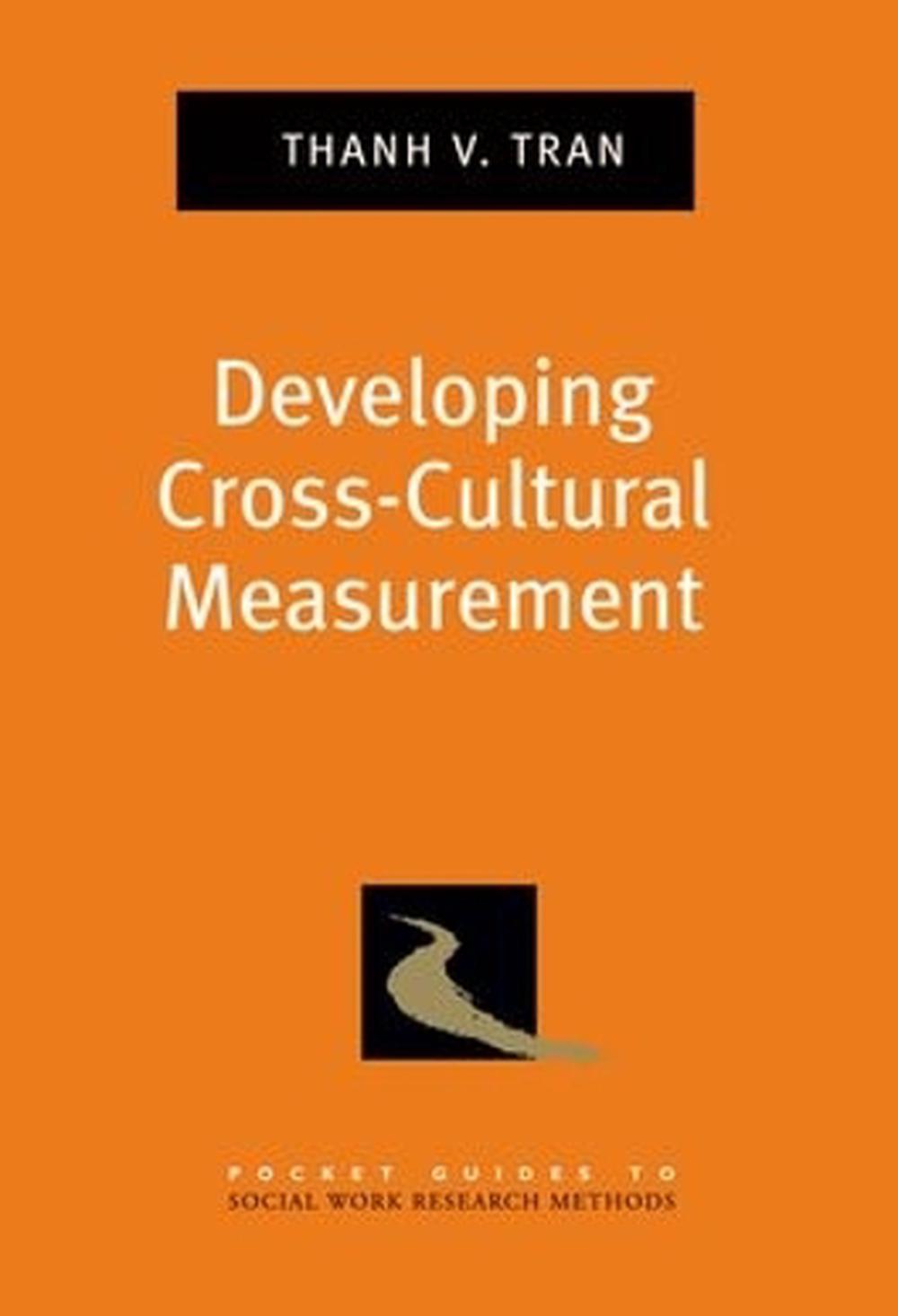
When you click on links to various merchants on this site and make a purchase, this can result in this site earning a commission. Affiliate programs and affiliations include, but are not limited to, the eBay Partner Network.
Developing Cross Cultural Measurement by Thanh V. Tran (English) Paperback Book

- Item No : 235643453874
- Condition : Brand New
- Brand : No brand Info
- Seller : the_nile_uk_store
- Current Bid : US $80.65
-
* Item Description
-
The Nile on eBay

Developing Cross Cultural Measurement
by Thanh V. Tran
This volume in the Pocket Guides to Social Work Research Methods series will guide researchers in developing and assessing cross-cultural research measurements. Chapters illustrate how to formulate research questions, select observable indicators, understand cross-cultural translation, evaluate measurement equivalence, and discern between best and poor practices in measurement development.
FORMAT
PaperbackLANGUAGE
EnglishCONDITION
Brand New
Publisher Description
Social workers engage in cross-cultural research in order to understand how diverse populations cope with life situations, to identify risk and protective factors across cultures, and to evaluate the effectiveness of policies and programs on the well-being of individuals from different cultures. In order to do so, it is necessary to begin with meaningful, appropriate, and practical research instruments, yet such instruments are not always readily available, or theymay be misleading or biased. In this clearly written pocket guide, social work researchers will find a concise, easy-to-follow explanation of how to develop and assess cross-cultural measures thatsidestep such complications and provide reliable, valid data. Using a step-by-step approach, expert cross-cultural researcher Thanh V. Tran carefully explores the issues and methodology in cross-cultural measurement development in social work research and evaluation. The book draws on existing cross-cultural research in social sciences and related areas to illustrate how to formulate research questions, select observable statistics, understand cross-cultural translation,evaluate and implement measurement equivalence, and discern quality within practices of measurement development. Tran also discusses how to use statistics software programs such as SPSS to generatedata for LISREL analyses, providing enough detail to help readers grasp the programs' applications in this area but not so much as to overwhelm.This concise text offers a wealth of knowledge about using and interpreting the use of culturally relevant research instruments. Doctoral students and social researchers in the field seeking guidance in selecting and adapting such instruments in their studies, or developing and assessing their own, will find it a terrific source ofessential information for their work. For additional resources,
Author Biography
Thanh V. Tran, PhD, is Professor and Research Chair in the Graduate School of Social Work at Boston College.
Table of Contents
1: Overview of Cross-Cultural Research2: Process of Cross-Cultural Instrument Development and Assessment3: Preliminary Steps in Cross-Cultural Instrument Development4: Adopting or Adapting Existing Instruments5: Developing New Instruments6: Assessing Measurement Equivalence7: Testing Cross-Cultural Measurement Invariance8: Concluding Comments: Measurement in Cross-Cultural Research
Promotional
This volume will guide researchers in developing and assessing cross-cultural research measurements.
Long Description
Social workers engage in cross-cultural research in order to understand how diverse populations cope with life situations, to identify risk and protective factors across cultures, and to evaluate the effectiveness of policies and programs on the well-being of individuals from different cultures. In order to do so, it is necessary to begin with meaningful, appropriate, and practical research instruments, yet such instruments are not always readily available, or they
may be misleading or biased. In this clearly written pocket guide, social work researchers will find a concise, easy-to-follow explanation of how to develop and assess cross-cultural measures that sidestep such complications and provide reliable, valid data. Using a
step-by-step approach, expert cross-cultural researcher Thanh V. Tran carefully explores the issues and methodology in cross-cultural measurement development in social work research and evaluation. The book draws on existing cross-cultural research in social sciences and related areas to illustrate how to formulate research questions, select observable statistics, understand cross-cultural translation, evaluate and implement measurement equivalence, and discern quality within practices of
measurement development. Tran also discusses how to use statistics software programs such as SPSS to generate data for LISREL analyses, providing enough detail to help readers grasp the programs' applications in this area but not so much as to overwhelm.This concise text offers a
wealth of knowledge about using and interpreting the use of culturally relevant research instruments. Doctoral students and social researchers in the field seeking guidance in selecting and adapting such instruments in their studies, or developing and assessing their own, will find it a terrific source of essential information for their work. For additional resources,Feature
Selling point: -cross-cultural measurement is increasingly vital for researchers to master in these globalized times
Selling point: this book will boost the field by making researchers comfortable with the measure development process, so that in the future there will be more measures that will help service providers and policymakers understand situations better
Selling point: -discusses how to use cutting-edge software to make measurement development and analysis simpler
Selling point: -filled with examples from social work practiceDetails
ISBN0195325087Author Thanh V. TranLanguage EnglishISBN-10 0195325087ISBN-13 9780195325089Media BookFormat PaperbackYear 2009Series Pocket Guides to Social Work Research MethodsIllustrations 10 black and white line illustrationsShort Title DEVELOPING CROSS CULTURAL MEASPosition Professor and Research ChairImprint Oxford University Press IncPlace of Publication New YorkCountry of Publication United StatesAffiliation Professor and Research Chair, Boston College School of Social WorkUK Release Date 2009-04-09AU Release Date 2009-04-09NZ Release Date 2009-04-09US Release Date 2009-04-09Birth 1843Death 1921Qualifications FBAPages 176Publisher Oxford University Press IncPublication Date 2009-04-09DEWEY 361.3072Audience Professional & Vocational


-
- The Lost Super Foods
- $ 37.00
- The Self-Sufficient Backyard
- $ 37.00
- A Navy Seals BUG IN GUIDE
- $ 39.00
- Childrens Books Phonics Lot 60
- $ 34.99
















